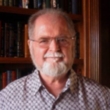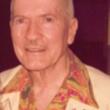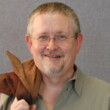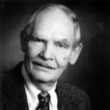NoveList provides detailed suggestions for other authors you might want to read if you enjoyed this book. Suggestions are based on recommendations from librarians and other contributors.
Readers of the original Dune books by Frank Herbert will want to continue with the series taken over by his son, Brian, as well as exploring Brian's other fiction and his nonfiction, including a biography of his father. -- Katherine Johnson
These world-building authors create thought-provoking science fiction by invoking engaging characters in fascinating settings with imaginative technology. The schisms and alliances between spirituality and science are themes shared by their intricately plotted novels. Descriptive narrative, shifts of perspective, and dramatic action fuse into compelling reading. -- Matthew Ransom
Wil McCarthy and Frank Herbert share a penchant for galaxy-spanning science fiction. Their work is focused on immortality -- attained either through a natural substance or highly sophisticated technology -- and its long-term social effects. Both thought-provoking writers create world-building space operas filled with rousing adventure and wild invention. -- Mike Nilsson
In their intricately plotted and sweeping science fiction epics, both N.K. Jemisin and Frank Herbert create worlds with complex mythologies and characters forced to make difficult decisions amid their grand heroic plans. -- Stephen Ashley
Alien worlds spring vividly to life in the works of Frank Herbert and Arkady Martine. Impressive world-building and creatively imagined nuances among alien cultures set the stage for political intrigue between large casts of characters in both authors' dramatic, complex, and intricately plotted space operas. -- Alicia Cavitt
Both Frank Herbert and Neon Yang write sweeping space operas that incorporate complex mythological and political elements. Herbert's writing tends to be more descriptive than Yang's spare prose. -- Stephen Ashley
Fans of Frank Herbert's epic science fiction series Dune will appreciate Seth Dickinson's science fiction and epic fantasy novels. Both authors create intricately plotted stories with impressive world-building featuring imaginary battles, imperialism, alien life, intrigue, betrayal, conspiracies, and revenge. Flawed characters add depth to their suspenseful and thought-provoking stories. -- Alicia Cavitt
Fans of high concept, sweeping science fiction epics will enjoy the works of Frank Herbert and Cixin Liu. Both authors write stories that intensify as they progress, but Liu's tales are focused more on hard science, while Herbert's incorporate more fantasy elements. -- Stephen Ashley
Both China Mieville and Frank Herbert create inventive and intricately plotted science fiction novels featuring detailed world-building that vividly describe life, politics, and commerce on remote planets. Fantasy elements like giant earthworms, krakens, and psychic abilities add complexity to their thought-provoking stories which can often be read allegorically. -- Alicia Cavitt
Though Tamsyn Muir's work is snarkier than Frank Herbert's more serious writing, both are known for writing dramatic and complex science fiction with deeply intricate world building. -- Stephen Ashley
Readers who enjoy speculative fiction featuring intricate world-building will appreciate the work of Frank Herbert and Ken Liu. Both Herbert's space operas and Liu's Asian-influenced epic fantasy novels revolve around rivalries, schemes, military strategies, political ambitions, intrigue, and imaginary battles involving large casts of characters. -- Alicia Cavitt
Science fiction authors Frank Herbert and Kim Stanley Robinson create richly detailed worlds set on alien planes inhabited by large casts of characters whose ideas and backgrounds vary wildly. Their stories are atmospheric, issue-oriented, and thought-provoking. Robinson writes hard science fiction while Herbert's stories contain fantasy elements. -- Alicia Cavitt






















































